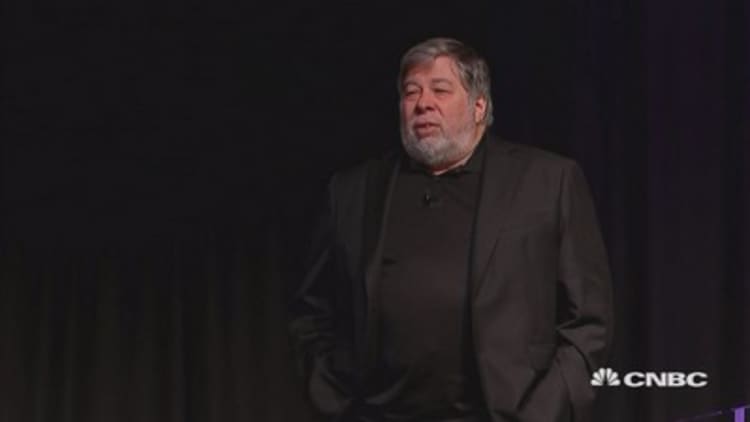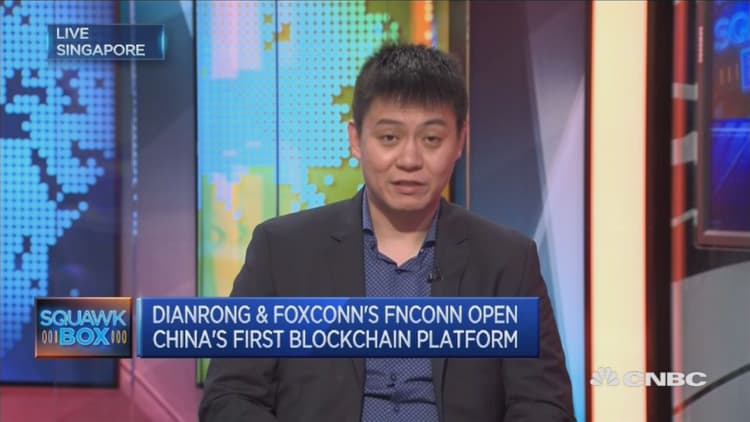
Blockchain, the technology underlying bitcoin and other cryptocurrencies, is one of the newest games in town and Israeli start-ups are trying hard to position themselves prominently in the field. With its cybersecurity and financial technology acumen, the country is well placed to play a role, say experts.
But how blockchain applies to the real world, apart from bitcoin and its ilk, often remains unclear. And the suspicion is that it will be a niche product, helping other technologies to operate in a secure or more efficient way. Yet, the ambitions of many in the industry go far beyond that.
Three founder-CEOs of Israeli blockchain startups explain their often rather grand visions for the future of their companies. Colu, which is the only one really up and running in its intended field, and Synereo are linked to the now almost familiar field of cryptocurrencies but the third, called Wave, proposes a very different idea.

"We don't believe that payment is a part of what blockchain will bring to the world of trade," Wave's chief executive Gadi Ruschin, boldly states. His startup, supported among others by Barclays, seeks to do away with physical paper transfers in the world of trade, effectively digitizing documents such as bills of lading. The idea is not to change the way trade is being conducted but to eliminate the need to send actual paper post.
"I don't think the documents are going to change but you can definitely transport them in an electronic way," explains Ruschin. The system was successfully tested at the end of 2016 in a pilot led by Barclays and more pilots are scheduled this year.
Ruschin may not share the vision of financial dominance that some cryptocurrencies exhibit but he's definitely shooting for the stars. In order for his system to be successful it should ideally be adopted by a whole sector: "Everyone understands that using paper documents is not efficient. The only thing we have to explain is that Wave will be the one that in the end will be chosen by the industry."

One step further goes Synereo's chief executive Dor Konforty. He's aiming at nothing less than bringing down the monopoly that large internet companies such as Facebook and Google have in generating income from online content and its curation. His aim is to, "completely liberate this economy from all these very centralized, very unfair centers of power."
He argues that users are being treated merely as "cogs" in the wheels of the large internet companies that profit from the content that they upload and share. "We're not rewarded in any way for creating all this value, for organizing the information on the internet as it is today."
He's set to introduce his first product as a beta-release at the end of this month. Called Wild Spark, the idea is to use a cryptocurrency issued by Synereo called AMP, for amplify, to attach value to content.
"We've created this game where everything eventually flows up to the creator but anyone who's part this value chain by being a curator by finding audiences that are interested, gets rewarded," says Konforty.
Synereo conducted Initial Coin Offerings in 2015 and 2016, raising $5 million, he says. There are about 900 million AMPs trading at just over $0.50 at the time of writing. Blockchain is important in several ways for the system he's developing: "It's a cryptocurrency, you can do micro-transactions, you can easily transfer amounts without a credit card or banks from person to person online."
Colu has been developing and running local cryptocurrency-based systems in several places around the world since last year, starting in Tel Aviv and Haifa and expanding to London and Liverpool. It says it's unique in the local blockchain currency field in that respect. "We're the only company in the world that has a production-ready tool, with hundreds of thousands of users using those tools," says co-founder and CEO Amos Meiri.
"What we did is we developed what we call an economy in a box. A solution to manage digital currencies on top of the blockchain," he explains. Other than a local currency it can also be used by large companies intending to set up their own currency system. Meiri expects that Colu will be able to announce a deal with a "large retailer" before the end of this year.
"We're working with a few of the biggest companies in the world who want to implement their own currency, their own user base. We're talking about millions of users."
He laughs when discussing his company in terms of blockchain: "Saying blockchain is just like saying 'the internet' in the 1990's. In the internet you have e-commerce and so many other things, so yes, there are a lot of blockchain companies but we're doing digital currencies that are pegged to real value."




